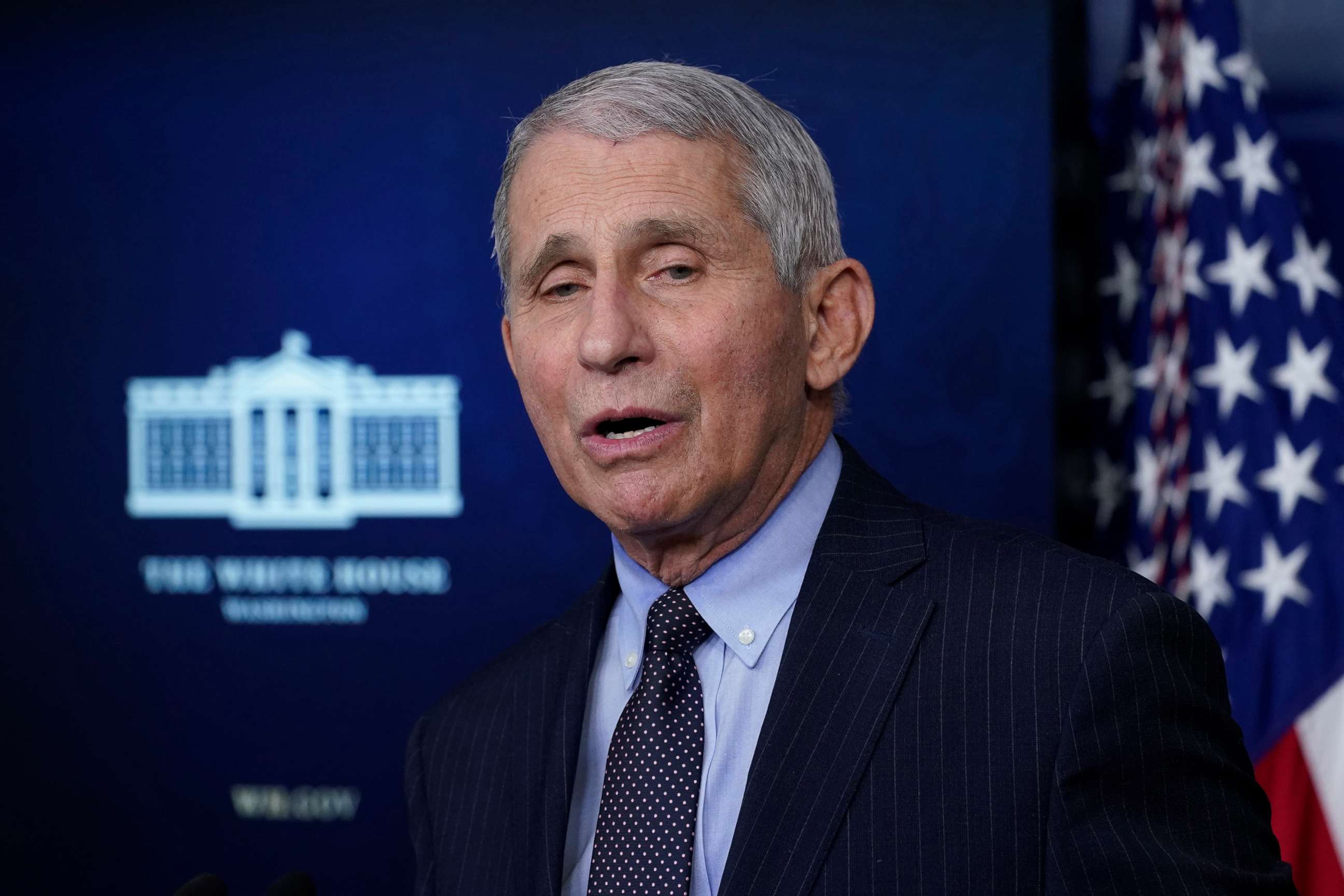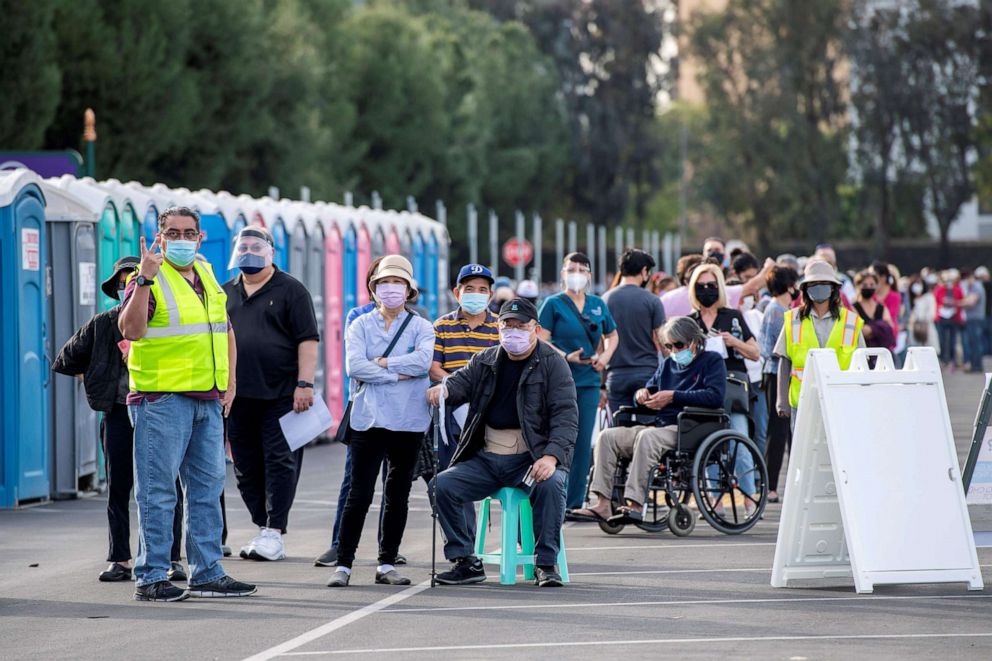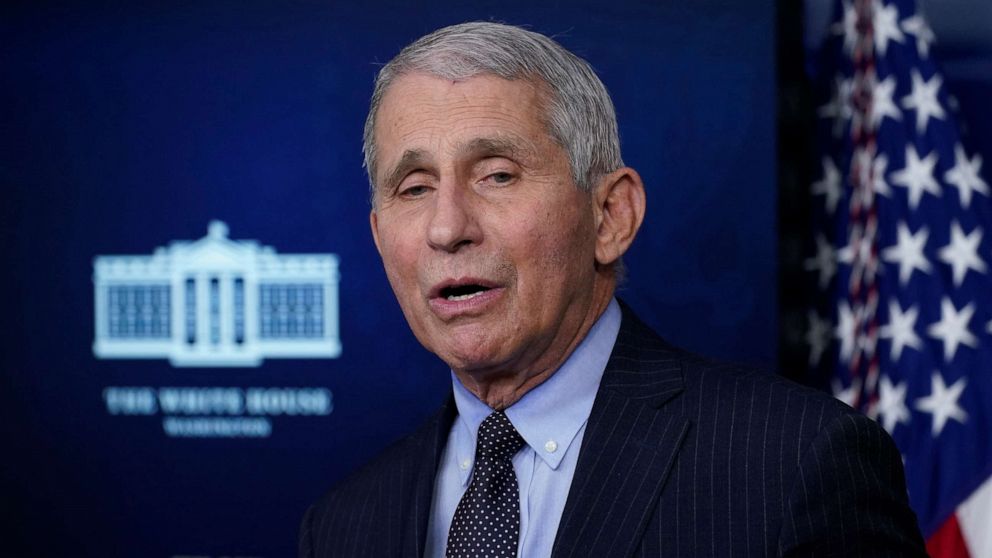'The mutants are here': US vaccines in a race to box out virus
In the waning months of Donald Trump's presidency, several top White House political advisers were locked in the wrong debate: Should the U.S. lock down until a vaccine arrives, or should the virus be allowed to spread in the hope enough young, healthy people would become immune, and the virus eventually would die out?
Either way, the thinking went, the country would eventually achieve "herd immunity," where a virus stops jumping from host to host, and the pandemic would simply disappear.
Turns out, herd immunity isn't that simple.
With the arrival in the U.S. of three different kinds of virus mutations -- originating from countries where the virus spread uncontrollably -- the country faces an entirely new and much more frightening prospect: What if the virus mutates so fast it chips away at the efficacy of the vaccine? What if people survive COVID-19 only to become re-infected with new, deadlier versions?
In other words, if the global rollout isn't swift enough to box out a virus that's learning how to evade the body's immune system, the U.S. could face years of lining up for more vaccinations and boosters, and the pandemic could drag on much longer than expected.

Dr. Anthony Fauci, the nation's top infectious disease expert, suggested on Wednesday that he isn't rattled yet.
He said he has confidence that the vaccines available now can still stomp out the pandemic if they're delivered in time. Also, scientists are considering their options in case that doesn't happen, including tweaks to vaccines to fight the new variants, possibly as booster shots.
Federal data also suggests the number of Americans who've received a first vaccine dose -- more than 27 million -- finally has surpassed the number of total COVID-19 cases in the U.S.
But the frantic race between the nation's sluggish vaccine rollout and the emergence of new mutations is clearly top of mind in the Biden administration.
"The mutants are here in the United States," Fauci declared Wednesday on NBC's "Today" show. "They are not dominant yet. We can prevent them from becoming dominant by trying to suppress the replication. But if they do become dominant, we may need to upgrade the vaccine."
The discussion challenges the long-held assumption that fall 2021 would be the time when the U.S. might return to normal. It also reinforces the message that masks and social distancing will remain a key to stopping the pandemic.
Public health officials say there's another lesson: It's in the nation's best interest to help vaccinate much of the world -- not just Americans. The three variants -- from Britain, South Africa and Brazil -- likely were introduced to the U.S. by international travelers.
Particularly concerning is the variant traced to Brazil, which may have mutations that help the virus partially evade the immune system. This raises the possibility of reinfection, although the second infection probably would be less severe.
Ashish Jha, dean of the Brown University School of Public Health, said controlling the virus worldwide is the only way to prevent additional mutations.

"In the worst-case scenarios, runaway outbreaks elsewhere can lead to a variant that can be resistant to our vaccines, even after the United States is vaccinated," Jha wrote in an op-ed in The Washington Post. "That could leave Americans vulnerable again, disrupting our economy, requiring updates in our vaccines and compelling us to re-vaccinate everyone."
Studies show that the currently authorized vaccines could protect against the variant originating from the United Kingdom. However, preliminary laboratory studies indicate that the South African variant is chipping away at the 95% level of efficacy seen in both the Moderna and Pfizer vaccines.
A potential third vaccine candidate -- by Johnson & Johnson -- has demonstrated effectiveness against the variants in South Africa and Latin America. The trial, launched in September, involved 44,000 volunteers and showed the vaccine was 72% effective at preventing symptomatic disease in the U.S., 66% in Latin America and 57% in South Africa.
When it comes to preventing severe illness, the vaccine was 85% effective everywhere it was tested. But Johnson & Johnson still has to apply for federal authorization, and U.S. regulators will review those findings before any doses can be distributed.
The best-case scenario remains finding a way to let the virus starve -- either through vaccines or social distancing.
"Viruses will not mutate well if you don't give them the opportunity to replicate in a very large way," Fauci told reporters at a White House press briefing on Wednesday. "If you have an open playing field for the virus, they will replicate and they will mutate."
ABC News' Sony Salzman contributed to this report.




